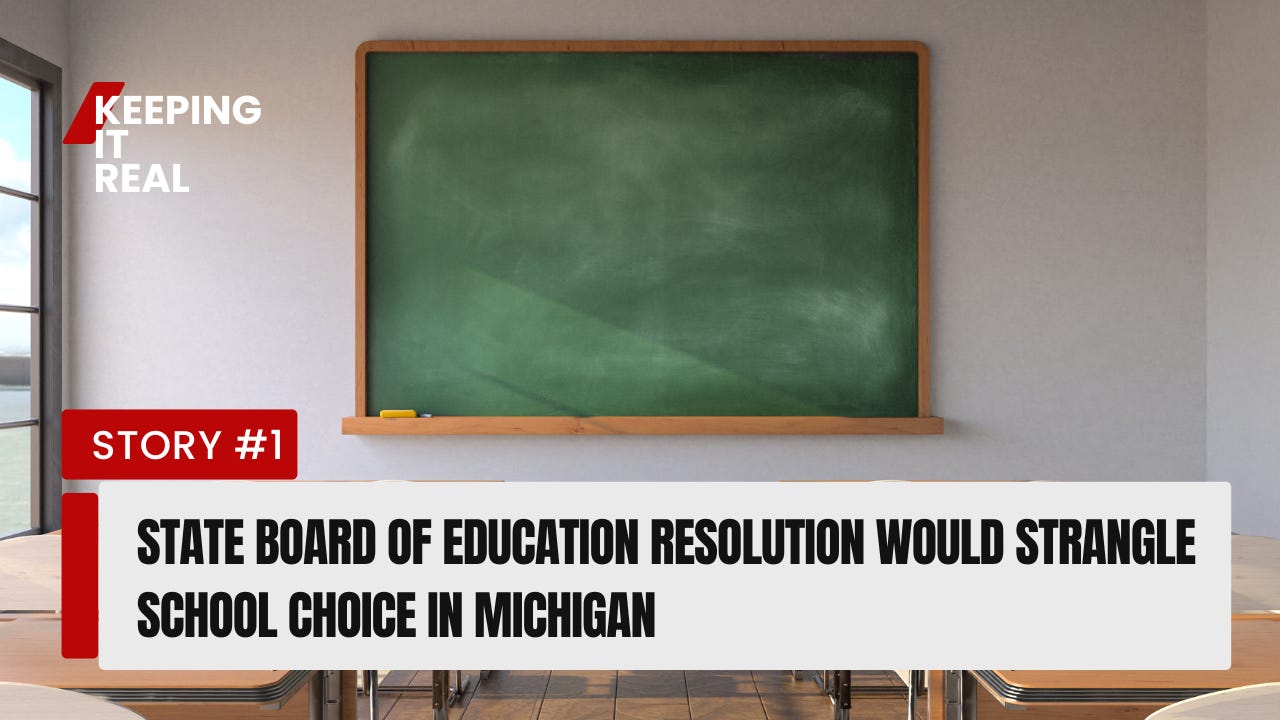Support independent journalism for just $5 a month and access exclusive content. Your subscription helps keep these vital stories available to all. Cancel anytime. Thank you to our current subscribers for your ongoing support! Join us in bringing light to untold stories.


LANSING, Mich - On April 10 the Michigan State Board of Education called for giving the Michigan Department of Education and local school districts veto power over the creation of new charter schools, which would be a dramatic change in state law. One of the members voting for the resolution previously called for an end to charter schools
Mitchell Robinson, a professor of music at Michigan State University, was elected to the state board in November 2022 and took office on Jan. 1, 2023.
Robinson has regularly criticized charter schools, both on his personal website and on the progressive website Eclectablog. In one article published on Eclectablog, he compared charter schools to private prisons. Click here to read more:

WASHINGTON D.C - Residents in a number of cities are still seeing the cost of consumer goods and services rise faster than the rest of the nation, even as the U.S. inflation rate levels off, according to a new study from WalletHub.
The personal finance website compared changes in the Consumer Price Index in 23 major metropolitan areas year over year, and over three recent months, and then created a score based on those figures.
Of the 23 cities ranked, WalletHub found that Honolulu and Miami have seen the steepest increases in consumer prices, including groceries, rent, and automobiles, while Detroit and Anchorage have seen prices cool the most.
The U.S. inflation rate hit a 40-year high after the COVID-19 pandemic but has recently settled at 3.5% – still above the Federal Reserve’s target of 2%. Click here to read more.

CHICAGO, IL - The federal government sees giving high school students college credit for advanced courses as a big win. Teachers unions see it as a job threat, so they are working to limit students’ potential.
“Dual enrollment works.”
That’s what the U.S. Department of Education had to say about taking dual credit classes in high school and its positive impact on college success and reduction in the time – and cost – to get a college degree.
But teachers unions view dual enrollment differently. They see this advancement of students’ educations as a threat to jobs. Some are lobbying to limit students’ access to college credit in high school. Click here to read more.

NEW YORK, NY— In a brief new paper, sociologists Joanna R. Pepin and Philip N. Cohen highlight a new and worrisome trend: Fewer high-school seniors think they will get married one day, per the Monitoring the Future (MTF) survey, and fewer of them think they’d make a good spouse, too.
These trends are important in themselves. As Pepin and Cohen point out, the data may portend further declines in the marriage rate. I wanted to float some hypotheses about why they might be happening, too.
First, could declining marriage expectations track the “Great Awokening”—the rise of left-wing sentiment among young people, especially women, in the past 10 years or so? The MTF data show growing liberal identification among young women (rising from about 20 to 30% in the past decade), and other evidence suggests liberals are less likely to marry, so it would make sense for declining marriage intentions to be bundled with these larger phenomena. Click here to learn more.

UNITED KINGDOM - Ukraine is to become a giant testing ground for a revolutionary new laser weapon which, if successful, promises to radically alter the economics of warfare, the British government says.
The “sovereign” British Dragonfire laser was successfully tested at an Army range in Scotland earlier this year. Now, defence procurement rules are being changed to rush it to deployment five years early, and perhaps to the front line in Ukraine even sooner. British Defence Minister Grant Shapps said the rollout of the anti-air laser to the Royal Navy warships was being brought forward five whole years, from 2032 to 2027, but made clear it could be seeing action earlier yet. Click link to learn more.




















